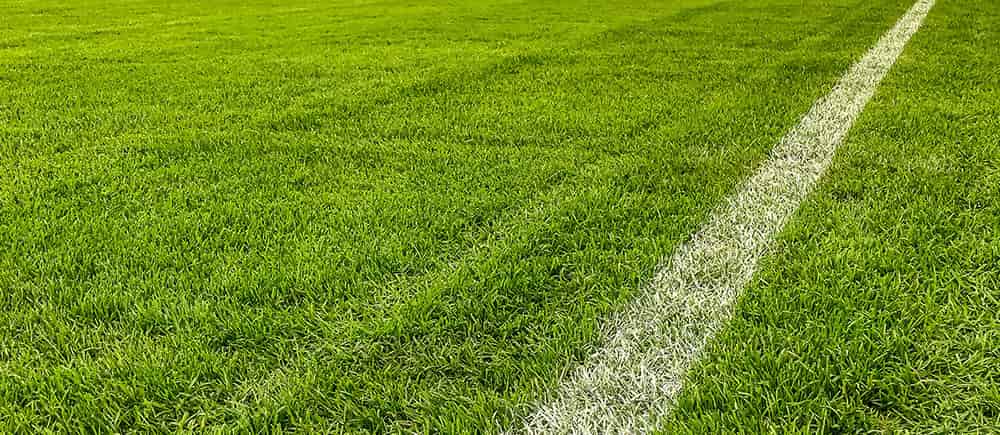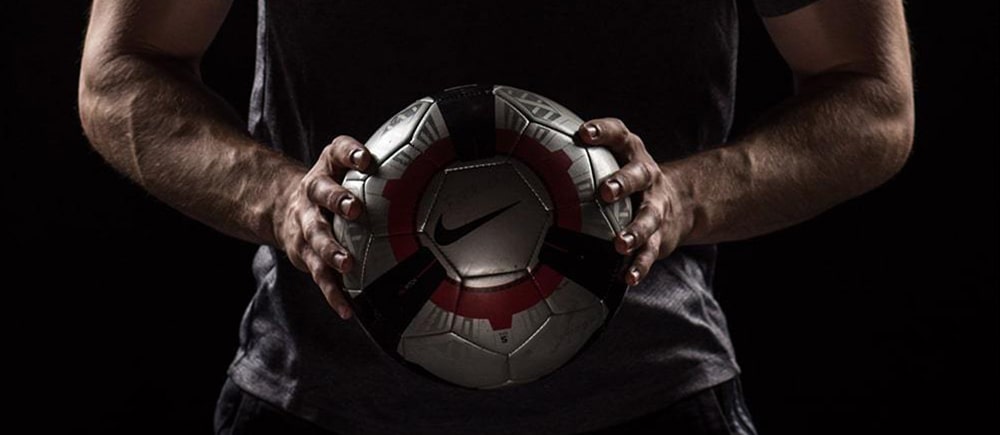Preparing for a soccer game is an important part of soccer.
In this article, I’m going to share with you what to do before a soccer game, based on what worked and what didn’t work for me. This article will cover:
- What to do in the days leading up to the game
- Preparing in advance at training
- Preparing your soccer bag
- Getting the rest you need
- What to eat and when
- What to drink and when
- Getting to the match
- Checking the field conditions
- Being mentally prepared
- Warming up and stretching
- Motivation and encouragement
During my playing years, I tried many different ways to better prepare myself for soccer matches. Having played soccer for 29 years, I’ve experienced how being prepared and unprepared for a soccer game can influence on-field performance.
It’s worth mentioning that the information provided in this article is based on my opinion and what I had found had worked for me during my soccer career.
This information is intended to provide you with some ideas and assistance on what to do to prepare for a soccer game. Having said that, you should always do what is right for you and seek expert advice if you wish to gain further information from qualified professionals.
In the days leading up to the game

Preparing for a soccer game generally happens in the days before the match.
Some players are super aware of their habits in the days leading to the match and tend to follow a strict preparation plan. Other players, however, may not put too much emphasis on preparation at this stage, opting to go with the flow and become more aware of their preparation habits closer to game day.
Don’t exert yourself
In the days leading up to the game, it’s important to be mindful not to exert yourself too much. Going for a long-distance run or doing a heavy leg workout at the gym may not be the best idea, as this could prevent you from being in peak physical condition on game day.
Instead, keep yourself relaxed by doing non-strenuous activities, such as going for a leisurely walk or taking an Epsom salt bath before the soccer game.
Preparation starts on the training field

If you have a training session 1 or 2 days out from your match, it’s important to be careful and not do anything stupid that could put you at risk of getting injured.
Also, try not to exert too much energy at training, to remain as fresh as possible and to give your muscles time to recover.
One thing to keep in mind is that generally when you train well, you play well. Therefore, it’s important to perform well at training and carry over that good form into your match. This also can send a good signal to your coach that you are ready for the upcoming match and that you should be selected in the starting 11.
Preparing your soccer bag

Preparing your soccer bag in advance is a great idea to ensure you have enough time to remember everything you need to take to the match. There is no worse feeling than remembering on your way to the game that you left your soccer socks on the clothesline.
This happened to me once early in my playing days, which resulted in me having to wear worn sweaty socks from a player in our reserves team who had just finished a match. Needless to say, after that day I never forgot my soccer socks again. Aim to pack your soccer gear the night before the game.
Wash your soccer gear well in advance
Not only is it beneficial to pack your soccer gear in advance, but it’s also important to wash your gear in advance so it dries in time. It isn’t a great feeling putting on wet soccer boots before a game.
You should always play in a clean kit with clean, polished soccer boots. Wearing freshly cleaned and polished soccer boots on game day can give you confidence, make you feel like a real soccer player and set a good example to fellow teammates.
To determine what you need to pack in your soccer bag to take to a match, you can refer to the article I’ve written on this topic ‘What to wear to a soccer game‘.
Get some sleep

Having a good night’s sleep provides the basis on how to get energy for a soccer game. It is vital to make sure you wake up feeling fresh and firing on all cylinders for your match.
Studies have found that sleeping has a positive impact on athletic performance, significantly improving your reaction time, speed, strength, and overall energy levels.
Sleeping can also provide other non-athletic benefits such as improving a player’s concentration, alertness, and attitude on the soccer field.
If you don’t want to feel tired, grumpy and lethargic, have a solid night’s sleep.
What about my social life?
Does this mean you should put your social life on hold and forfeit every social event that comes up the night before a match? Not exactly.
Be mindful that you are playing a match the next day, so stay hydrated and plan your night. Plan when you’re going to arrive and leave the event, and how you plan to get home that night. It might be best to find your way to and from the event, rather than relying on getting a lift with someone else who may not want to leave at the same time as you.
If you know you’re going to have a late-night, try and make up for it by extending your sleep in the morning. This extra sleep can help you catch up on the sleep you missed out on the night before.
Avoid alcohol and fast food
Resisting the temptation of consuming alcohol and fast food the night before a game is recommended. Soccer players who are serious about the sport and want to perform at their best, generally aren’t including alcohol and fast food in their diet, let alone consuming it the night before a game.
On the day of your match, make sure you are relaxed and resting by doing non-strenuous activities. Conserving your energy for your match should be the focus, so steer clear from mowing the lawn, cleaning the house or performing any other activities that require you to use up your energy.
What to eat before a soccer game?

It is important to eat healthy foods to maintain a healthy lifestyle and ensure you can perform at your best on the soccer field.
Choosing what to eat before a soccer game can be a personal choice. Not only do you want to eat the best food that provides you with the right nutrition, but you also need to consider when to eat.
Start by choosing what to eat the day before a soccer game. Eating a carbohydrate-based meal the night before game day is a good idea, as it will provide you with energy for the match. My personal choice was a bowl of spaghetti bolognese.
Plan when you intend to eat
Knowing what time your game starts will allow you to plan your meals on the day. Try to eat your last full meal about 3 hours before kickoff and a light snack about an hour before. This will help you have enough time to digest your full meal and keep your energy level high with a light snack.
Playing at different times will require you to adjust your meal plan according to your kick-off time. I learned this the hard way on one occasion when I had a night match.
I had a bowl of spaghetti 2-3 hours before the game which was too heavy of a meal for me and found myself burping it up through most of the game, unable to run or focus on the game.
I didn’t plan my meals well that day and this had a detrimental effect on my match performance that day. I recommend putting some extra thought into planning your game day nutrition and what to eat, especially when playing at different times.
The majority of my games, however, were generally played at 3 pm, so I was able to find a regimen that worked for me.
Game day meal plan
Here is my meal plan that I followed on most game days:
Breakfast (9 am)
- Bowl of cereal with light milk
- 1x piece of fruit – banana
Lunch (12 pm)
- 2x wholemeal toasts
- 300g baked beans
- 1x soft boiled egg
Snack (1 pm)
- 1x choc chip muesli bar
- 4x rice crackers
Half-time
- A small handful of lollies
In addition to my meal plan, my fluid intake was also just as important.
Keep your fluids up

Staying hydrated on game day and in the days leading to the match will keep your muscles fresh, prevent dehydration and will reduce the chance of cramping.
Drinking water throughout these days will help you stay hydrated. Sometimes though, especially on game day when you sweat a lot, drinking water isn’t enough.
Sports drinks can help
This is where a sports drink or alike can provide the added benefits of containing electrolytes and minerals (such as magnesium, calcium, sodium and potassium). This will help replenish your electrolyte and mineral levels after sweating and suffering from muscle fatigue during exercise, keeping you hydrated for longer. Just be sure to look at the product ingredients generally found on the back of the product, as many sports drinks contain many other ingredients that you may not want to be having.
An added benefit of using a sports drink is not having to constantly be consuming water to stay hydrated, as this could result in bloating. However, if you prefer to not use sports drinks for hydration purposes, just be sure to listen to your body to know how much water you should drink before a soccer game.
The sports drink that I always used was Elyte Electrolyte. This product came in concentrated form, which I mixed into small bottles to have before the game and at half time. It contained a higher volume of magnesium, which worked well for me, as I suffered from cramps earlier in my career.
Game day fluid intake plan
To prevent getting cramp during a game, I followed the following fluid intake plan on game day:
Before breakfast (8:30 am)
- 2x glasses of water
Breakfast (9 am)
- 1x cup of tea or coffee (caffeine reduces fatigue and drowsiness)
After breakfast (10:30 am)
- 1x glass of water
Lunch (12 pm)
- 1x glass of water
On my way to the match (1 pm)
- 1x small bottle of Elyte Electrolyte
Half-time
- 1x small bottle of Elyte Electrolyte
Avoid having any dairy products a few hours before the game. Milkshakes and ice-cream don’t go well with exercising, and likely result in you feeling nauseous and vomiting it back up.
Also, gassy drinks, such as soft drinks should be avoided before games too. This can result in you getting a stitch during the match and feeling bloated.
Getting to the match

Always allow yourself enough time to get to the venue. Know the address of where the match is being played, plan how you intend to get there and what time you need to leave.
Your arrival at the match should allow you enough time to check the field condition, get changed into your soccer gear, get assistance from the team physiotherapist if needed, warm up and listen to the coach’s instructions before kick-off.
Ideally arriving 1 hour and 30 minutes before the game is suitable, however, this can depend on the level you are playing at and the club requirements.
Check the field conditions

It’s always a good idea to inspect the field before the game.
Having a walk on the field is important to view the condition of the field, as the weather can greatly impact the playing surface, resulting in soft, hard, wet or dry field conditions. Knowing what condition the field is in will help you decide the appropriate soccer cleats to wear for the match.
Checking the field can also be beneficial to see areas to avoid during the match. Not all fields are perfectly flat or undisturbed, so be sure to check for any holes, bumpy areas, puddles, and mud.
Mental preparation

You may have already been visualizing the game and thinking about your role in the days leading up to the match. This is a good sign because it means that you want to do well and make a positive contribution.
Now it’s pre-game and knowing how to get mentally prepared for a soccer game is crucial.
Focus on your role and responsibilities
It’s time to make the transition from joking around with your teammates, to getting focused on your role and responsibilities for the match, understanding team tactics and listening to the coach’s instructions.
It’s important to get into this frame of mind before the warm-up, so you can concentrate on performing a good warm-up with intensity to take into the match.
To help you be prepared mentally, you should:
- Keep calm, confident and relaxed
- Turn up your awareness and concentration levels
- Visualize the impact you will have on the game
- Keep positive and bring a good attitude
- Acknowledge your nerves and maintain composure
- Use the adrenaline rush for game time
- Remind yourself to have fun. After all, you wouldn’t be playing soccer if you didn’t get some enjoyment out of it
Warming up

It’s important to warm-up and stretch your muscles before performing any form of exercise, to reduce your chances of sustaining a soft tissue muscle injury.
Getting a good warm-up in and performing a variety of soccer stretches before a soccer game is essential and should last around 30 mins.
Stretch to loosen your muscles
Start by stretching and make sure to take your time to prevent overstretching while the muscle is still cold.
On-field players can focus on stretching the legs, glutes, and back. Goalkeepers should also focus on stretching these areas, along with the upper body.
Each player will have areas they prefer to focus on stretching more than others. This is based on the individual, as each body is different from another.
For me, I allocated more time stretching my lower back and calves, as these areas were generally tighter than others.
When your muscles feel loosened up, start your warm-up with the team or individually.
Have a good warm-up
There are many warm-up exercises you can perform, with the most common being jogging, high knees, butt kicks, and side steps.
It’s a good idea to gradually build up the pace of the warm-up, including in some short and sharp sprints towards the end, to replicate the intensity of the match.
It’s also important to get some time with the ball, to ensure your passing, crossing, shooting, first touch and control are on point.
Motivation and encouragement

Getting motivated, encouraging teammates, demonstrating good body language and showing passion can give you the confidence you and your team need to have the edge over the opposition.
Players can draw on many things before a match to help get motivated before kick-off. The coach or captain may deliver a pre-match speech, you may be about to face off against your arch-rivals or your former team, you are involved a final playing for silverware, or you simply gain inspiration from playing for the badge.
Also, encourage your teammates to perform well and be ready for the game. Challenge them to do their best for the team and get vocal in the lead up to the game. This can help motivate the team.
Listen to music
Music can be a great source of inspiration, providing you with the pump up you need.
I loved listening to music before a match and there was never a shortage of song options in the team. Here’s a list of my top 10 best songs to listen to before a soccer game:
1. Jimmy Barnes – No second prize
2. November Rain – Guns N’ Roses
3. Luciano Pavarotti – Nessun Dorma
4. Tina Turner – The Best
5. Survivor – Eye Of The Tiger
6. Robert Tepper – No Easy Way Out
7. John Farnham – Break The Ice
8. John Farnham – Thunder In Your Heart
9. Europe – The Final Countdown
10. Van Halen – Dreams
Share




